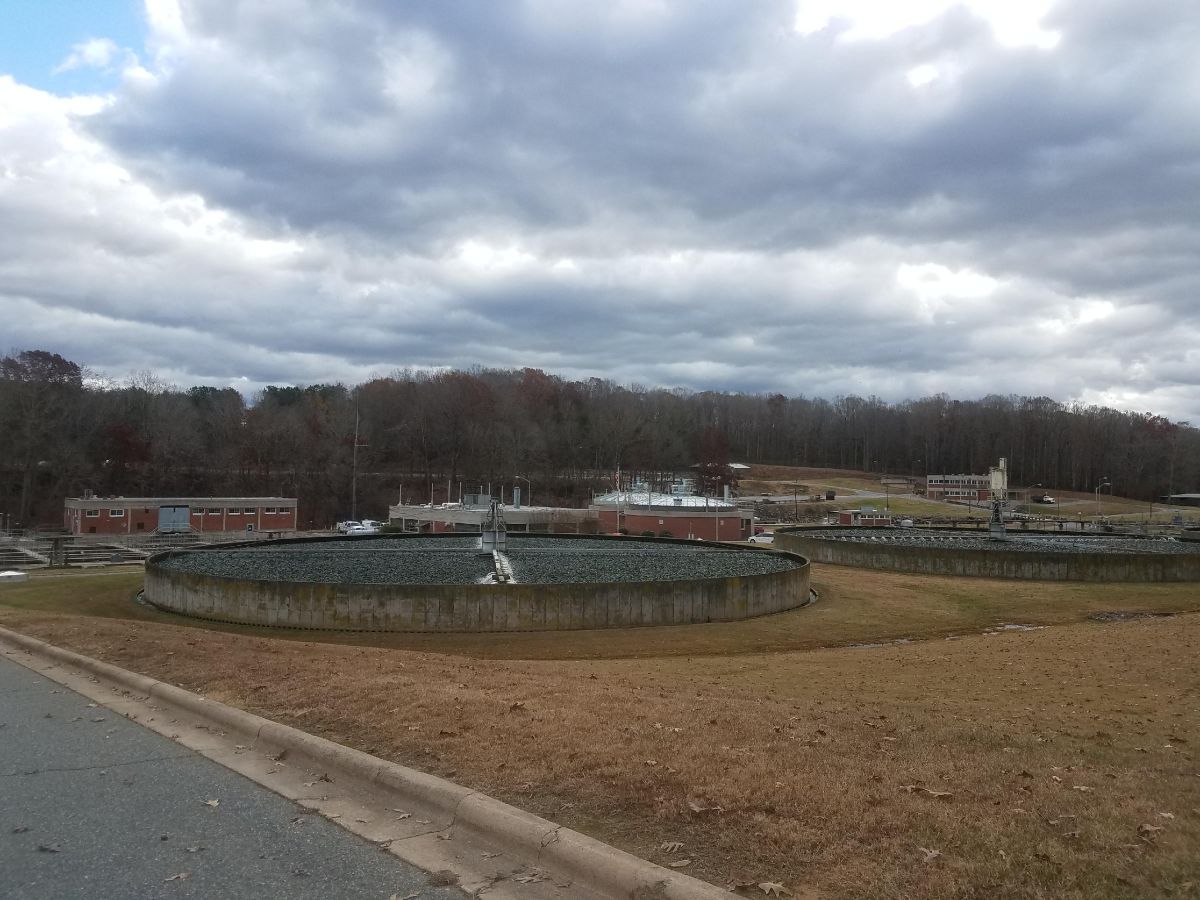RALEIGH — The name says it all: Rules Review Commission.
As you might guess from the title, the ten-member state commission’s main task is reviewing rules, in this case the rules under which government agencies enforce their mandates. They are the techniques, measurements and procedures for regulating everything from air emissions to hair salons.
Supporter Spotlight
The Rules Review Commission (RCC) oversees a complicated and often technical layer of the regulatory process. It’s not often in the spotlight, but now as a multi-year global review of all state rules gathers momentum, the commission is drawing more interest, since it represents a critical stop in a major effort that could ultimately alter key rules for enforcing environmental policy.
As part of that sweeping review, last week the commission approved a classification plan that will require the state to re-adopt 375 existing water quality rules governing a range of categories, including water supplies, individual watershed rules like those for the Tar-Pamlico and Neuse rivers, rules on outstanding resource waters, including portions of Bogue and Core sounds and regulations on the land application of animal and human waste.
And that first major group of rules is just the start. With state environmental officials acknowledging that nearly every environmental rule is likely to be classified in a way requiring re-adoption, the bulk of state rules for enforcing environmental regulations will go through a process that will have to pass muster with the Rules Review Commission.
Rules Review in Focus
The RRC is made up exclusively of legislative appointees with the Speaker of the House and President Pro Tempore of the Senate each naming five seats. Members serve two-year terms. There is no statutory requirement for specific areas of expertise for the RRC, but it has typically been made up of a mix of lawyers and business owners.
Meet the Members of the Rules Review CommissionSenate President Pro Tem Appointments
Margaret Currin, Chair — Former U.S. attorney and legislative counsel with the U.S. Senate, professor at Campbell Law School in Raleigh. Term ends June, 2015. Supporter SpotlightJay Hemphill — Raleigh attorney specializing in tax and estate planning law, former Judge Advocate General captain for the U.S. Air Force. Term ends June, 2015. Jeffery Hyde — Owner of a wedding photography firm in Greensboro and a former GOP candidate for state Senate. Term ends June, 2015. Faylene Whitaker — Co-owner of Whitaker Farms and Garden Centers, a 500-acre farm and greenhouse operation in Randolph County. Term ends June, 2015. Speaker of the House Appointments Anna Baird Choi — Raleigh lawyer who specializes in law governing state licensing boards. Term ends June, 2016. Jeanette Doran — Raleigh lawyer specializing in employment law, former executive director N.C. Institute for Constitutional Law and current candidate for the N.C. Supreme Court. Term ends June, 2016. Garth Dunklin — Charlotte lawyer specializing in commercial real estate law. Term ends June, 2015. Stephanie Mansur Simpson — Lawyer and former government affairs director for the N.C. Realtors Association. Ralph Walker — Former state appeals court judge and member of the State Ethics Commission. Term ends June, 2015. |
Current members include a former Court of Appeals judge, a law professor, a tax lawyer, a real estate lawyer, a photo business owner and a farm and garden center owner.
Their main job comes at the end of what is often a lengthy rule-writing process in which an agency and a group of stakeholders hammer out a procedure for meeting the requirement of a statute or state or federal standard.
For a rule to clear the RRC it must pass four tests: (1)The agency, board or commission issuing the rule has to have the legal authority to do so; (2)The rule must be written in a way that is clear and unambiguous; (3) It must be necessary to fulfill a duty delegated to the agency by the General Assembly and; (4)The agency must have complied with proper procedures for adopting the rule, such as holding public hearings and soliciting comments.
The RCC started in the mid-1980s, mainly to address the need for better uniformity in the writing and adoption of rules for the growing state regulatory structure. Since the commission’s inception, its role has grown.
 Richard Whisnant |
“They’ve had an ever-increasing set of responsibilities and degrees of power over the rule-making process,” said Richard Whisnant, a professor of public law and policy with the University of North Carolina at Chapel Hill School of Government and author of Rule Making in North Carolina. Whisnant said the commission’s power greatly increased in 1995 when it was given the authority to veto rules. With its new job, the commission’s clout is expanding.
“This latest role in the total review of rules,” he said, “is an even further step up in power and importance to rule making.”
Grady McCallie, policy analyst for the North Carolina Conservation Network, said the large number of rules that are likely to go through the re-adoption process means that rather than just reviewing new rules, almost every environmental rule currently on the books will have to be approved by the commission.
“They have a huge work-load ahead,” he said, adding that the extent of it is still an unknown, since it’s yet unclear how developers and industries might respond once the rules are reopened.
“One of the big questions on the re-adoption process is how much of an effort there will be to change the rules,” he said.
Driving the Workload
One reason the commission’s involvement and workload is increasing is the way the legislature set up the review process and how state agencies responded.
The review idea began early in the 2011 legislative session as part of a “regulatory reform” movement. At first the legislature ordered all state agencies to identify and report back on which state regulations were stricter than their federal analogs or had no corresponding federal rules at all.
 Grady McCallie |
Subsequent legislation set up a plan for reviewing all state rules, eliminating those found to be redundant or unnecessary and requiring those found to be necessary and with a “substantive public interest” to go back through a re-adoption process.
At the same time, the legislature added fiscal studies and other requirements to the review process and put an emphasis on environmental rules, mandating that they be among the first to be classified.
Last year, in response, state Department of Environment and Natural Resources (DENR) officials issued a recommendation to classify the entire first major set of 375 water quality and wetland rules as “necessary with substantive public interest.”
After a public comment process and approval of the classification by the Environmental Management Commission, the proposal was sent on to the RCC. Last week’s RRC formal approval of the classification means that the rules will now go through the re-adoption process.
Jennifer Everett, rule-making coordinator with DENR’s Office of General Counsel, said the department is still working on the timetable for the re-adoption process, which will include some of the elements of the original adoption process, such as stakeholder meetings and public comment.
“There has not been a schedule established yet,” she said, adding that it won’t be the same process as adopting a new rule since the rule has already been written.
“It’s not rule-making so you can’t compare it to that,” she said.
Regardless of the process, the last stop for the rules awaiting re-adoption will be the RRC.
 Margaret Currin |
The RRC chair Margaret Currin, a former federal prosecutor and a professor of law at Campbell University Law School, said the commission and its staff have worked to get ready for an unprecedented task.
Currin said there has been substantial training, feedback and coordination with agencies as they comb through their rules.
Most of the issues, she said, “have been ferreted out ahead of time.”
To take on the job, the RRC doubled its staff attorneys from two to four and added a paralegal position.
The RRC’s job for the first step in the process is oversight of the classification of almost 20,000 separate rules by the issuing agencies, boards and commissions, a process that is scheduled to take until 2019 to complete.
Currin said as large a task as that is, the next step — the re-adoption process — will likely prove much more challenging. For each re-adoption, she said, the commission will have to make the same determination as a newly crafted rule.
“The real work,” she said, “will be when they are coming back through the process. That requires fairly careful reading.”
Constitutional Questions
Some observers of the ongoing review process say the legislative push and the renewed focus on the Rules Review Commission may lead to another look at the constitutionality of the commission’s authority, a question Whisnant, who served as DENR general counsel in the mid-1990’s, said has surfaced each time the RRC has gained clout.
“The question is, ‘How far can the legislature go in setting up an entity to oversee things the executive branch does?’,” he said. “What’s the limit on that?”
Both McCallie and Whisnant said that as a body appointed exclusively by the legislature, there has long been the question of whether the RRC’s authority over an executive branch function is a violation of the state constitution’s separation of powers requirements.
 Justice Robert Orr |
“Can you have a proxy for the legislature sitting at the end of an executive branch process?” McCallie asked. The RRC’s power was challenged, he said, several times, including about a decade ago when a more “politically and ideologically driven commission” squared off with the Environmental Management Commission and the state Board of Pharmacy. A court case narrowly backed the RRC’s oversight authority but never settled the constitutional issue.
Whisnant said the authority of the legislature to affect rules and regulations is clear, but what is unclear is whether they can do that through a commission rather than through legislation.
He said one difficulty in sorting through the constitutional issue is that in making rules, agencies aren’t acting in a purely executive branch role, but sometimes take on legislative and judicial functions. He said he expects some kind of challenge on the issue, related either to the sweeping review of rules or possibly to the new coal ash commission, whose structure was a point of contention between the executive and legislative branches at the end of the last General Assembly session.
Former N.C. Supreme Court Justice Robert Orr said he, too, thinks there could be a separation of powers confrontation ahead. He said the RRC’s role and the extent of its powers and the legislature’s right to set up an entity like it are still a question mark.
“It’s a fascinating legal and constitutional issue that has never been definitely decided by the courts,” he said. “I suspect it will get to litigation at some point soon.”







